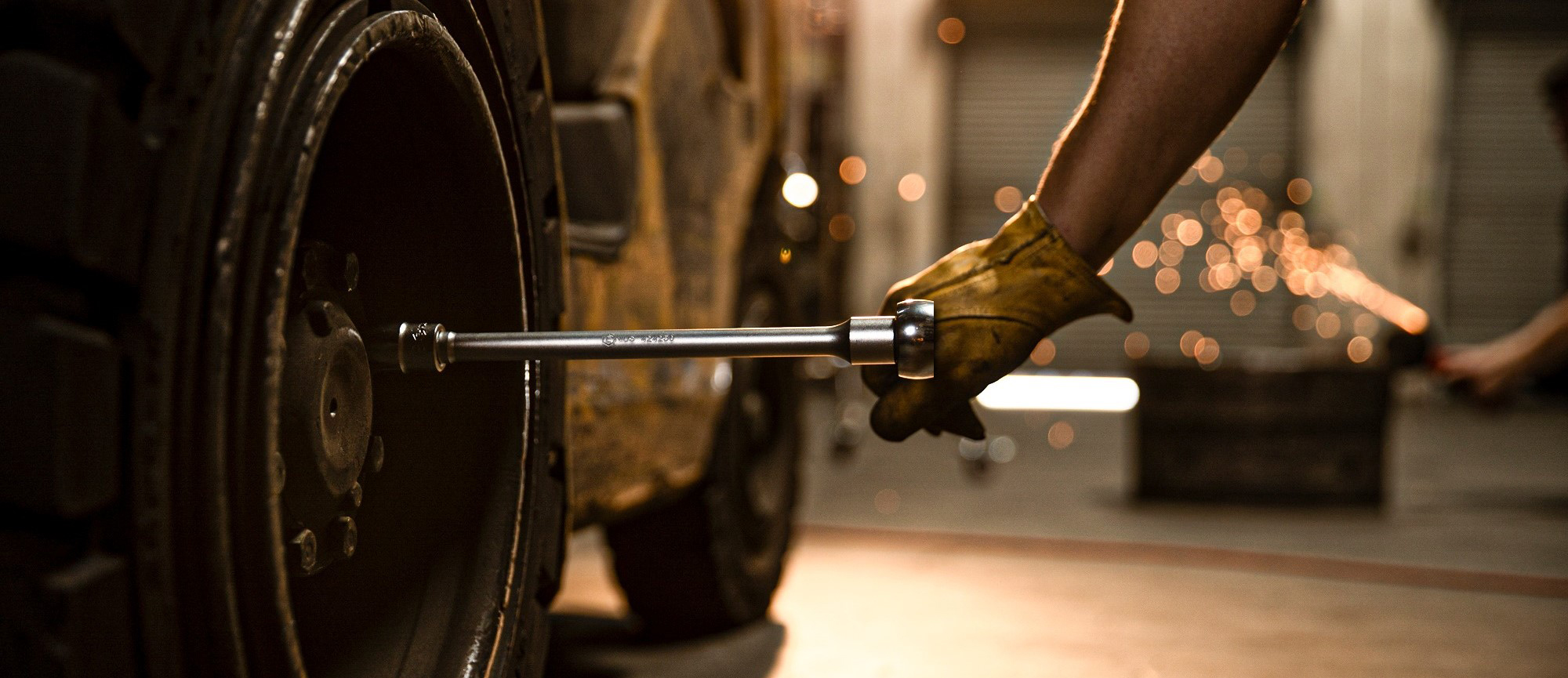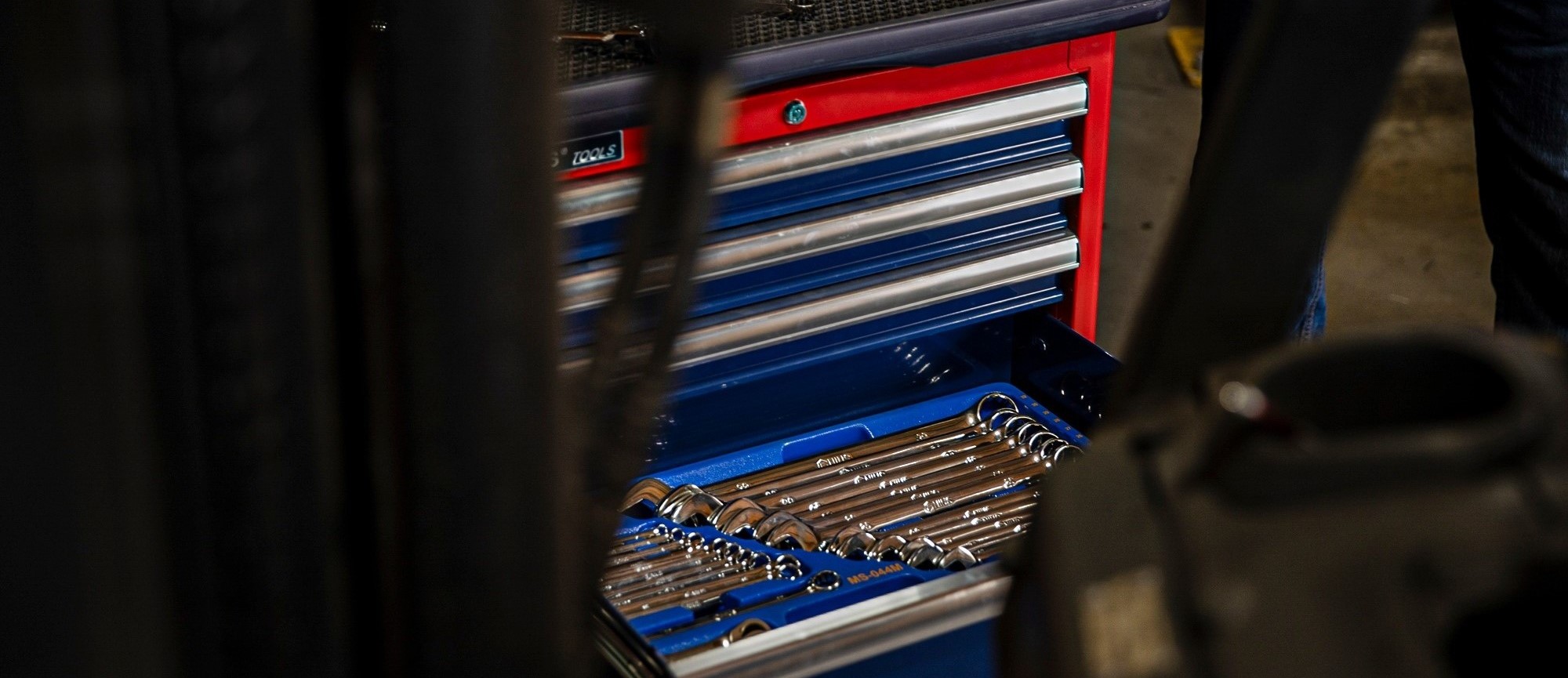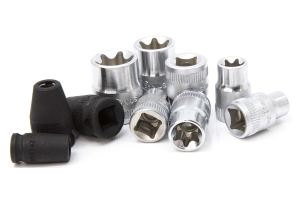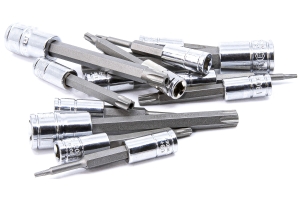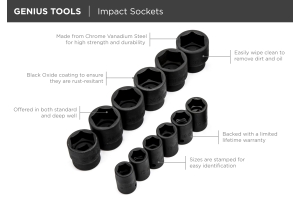Page 2 - Blog
-
Posted: July 31, 2025Categories: Genius Tools ArticlesRead more »
Torque wrenches are precision instruments — not just another item in your tool drawer. Whether you're assembling an engine, changing wheels, or maintaining a fleet, using the correct torque wrench can prevent costly failures and ensure safe, professional results. In this guide, we’ll break down the main types of torque wrenches — beam, click, and digital — and help you match each one to its ideal use case.
1. Beam Torque Wrenches: Reliable Simplicity
Best for: Budget-friendly, low-cycle applications, visual learners
Beam torque wrenches use a simple mechanical principle — as torque is applied, a pointer deflects over a scale. There's no clicking or electronics involved, just a physical beam showing your progress.Pros:
- Affordable
- No calibration needed
- Long-lasting with minimal parts
Cons:
- Less accurate when used at awkward angles
- Requires visual attention2. Click Torque Wrenches: The Industry Standard
Best for: Professional technicians, frequent use, critical torque values
Click-style -
Posted: July 24, 2025Categories: Genius Tools ArticlesRead more »
So you’ve decided to start wrenching on your car — great! Whether it’s an oil change, brake job, or suspension upgrade, having the right tools can make the difference between a smooth project and a frustrating afternoon. Here’s a list of the most essential, affordable tools every first-time home mechanic should own, plus some top picks from Genius Tools.
1. Socket Set (Metric & SAE)
You can’t do much on a car without a good socket set. Look for one that includes both shallow and deep sockets in metric and SAE sizes – Allowing you to tackle everything from engine bolts to suspension components with the right fit and reach..
Genius Tools Picks:
AC-359B 59 Piece ¼” Drive and 3/8” Drive Metric Socket Set
GS-244MS 44 Piece ¼” Dr. Metric & SAE Socket Set
2. Screwdriver Set
From interior panels to hose clamps, a good screwdriver set is a must. Make sure yours includes both flathead and Phillips sizes.
Genius Tools Pick:
TR-507S 7 Piece Slotted & Phillips Screwdriver Set3. Torque Wrench
Even for
-
Posted: October 09, 2024Categories: Genius Tools ArticlesRead more »
Genius Tools 44 Piece 1/4" Dr. Metric & SAE Deep Hand Socket Set - GS-244MS: The Ultimate Guide
Table of Contents
- Introduction to the Genius Tools 44 Piece Socket Set
- Key Features of the GS-244MS Socket Set
- Metric vs. SAE: Understanding the Differences
- Applications of the 44-Piece Deep Hand Socket Set
- Why Genius Tools is Trusted in the Industry
- How to Choose the Right Socket Set for Your Needs
- Care and Maintenance Tips for Your Genius Socket Set
- Frequently Asked Questions
- Are You a Reseller or Industrial Supplier?
1. Introduction to the Genius Tools 44 Piece Socket Set <a id="introduction"></a>
When it comes to precision, durability, and versatility, few socket sets on the market can compete with the Genius Tools 44 Piece 1/4" Dr. Metric & SAE Deep Hand Socket Set (GS-244MS). Whether you're an industrial mechanic, an automotive technician, or a dedicated DIYer, this set provides the essential tools to handle a wide variety of tasks.
The Genius Tools GS-244MS is designed to meet the needs
-
Posted: October 09, 2024Categories: Genius Tools ArticlesRead more »
Table of Contents
- Introduction to the Genius Tools 32-Piece 3/8" Dr. Metric Deep Impact Socket Set
- Key Features of the TF-332M Socket Set
- Why Deep Impact Sockets Matter
- Precision Engineering and Durability of Genius Tools
- Full Overview of Socket Sizes and Applications
- Benefits of Using Genius Tools Impact Sockets
- Comparison with Standard Sockets
- Genius Tools' Commitment to Quality and Performance
- Ideal Use Cases: Automotive, Industrial, and Heavy-Duty Applications
- How to Care for Your Impact Socket Set
- Conclusion
- Contact Us for Reseller and Supplier Information
1. Introduction to the Genius Tools 32-Piece 3/8" Dr. Metric Deep Impact Socket Set
The Genius Tools 32-Piece 3/8" Dr. Metric Deep Impact Socket Set (TF-332M) is a must-have for professionals and serious DIYers alike. Engineered to handle the toughest jobs, this deep impact socket set is designed to provide maximum durability, precision, and efficiency. Whether you're working in automotive repair, industrial settings, or any heavy-duty
-
Posted: October 09, 2024Categories: Genius Tools ArticlesRead more »
Complete Guide to the Genius Tools 6 Piece 1/4" Dr. SAE Universal Hand Socket Set (12-Point) - US-206S
Table of Contents
- Introduction to the Genius Tools 6 Piece 1/4" Dr. SAE Universal Hand Socket Set
- Key Features of the Genius Tools US-206S
- How to Use the Genius Tools 6-Piece Universal Hand Socket Set
- Why Choose Genius Tools: Quality, Precision, and Reliability
- Comparing the US-206S to Other Socket Sets on the Market
- Applications for the Genius Tools Universal Hand Socket Set
- Maintaining Your Genius Tools Socket Set
- Frequently Asked Questions
- Conclusion
- Reseller Information: Partner with Genius Tools
1. Introduction to the Genius Tools 6 Piece 1/4" Dr. SAE Universal Hand Socket Set
The Genius Tools 6 Piece 1/4" Dr. SAE Universal Hand Socket Set (12-Point) - US-206S is a compact, high-quality socket set designed to meet the needs of professional mechanics, industrial users, and DIY enthusiasts alike. With a history of precision engineering and durability, Genius Tools has long been a trusted
-
Posted: October 09, 2024Categories: Genius Tools ArticlesRead more »
Genius Tools 4 Piece SAE Extra Long Box End Wrench Set - DE-704S: The Ultimate Tool for Professionals
Table of Contents:
- Introduction
- What Makes the DE-704S SAE Extra Long Box End Wrench Set Special?
- Key Features and Benefits
- Extra Length for Greater Leverage
- Precision Engineering for a Perfect Fit
- Premium Build Quality for Durability
- Practical Applications of the DE-704S Set
- Automotive Use
- Industrial and Mechanical Work
- Detailed Specifications of the DE-704S Set
- Why Choose Genius Tools for Your Wrench Sets?
- Related Products for a Complete Setup
- Maintaining Your Wrench Set for Long-Term Performance
- Final Thoughts: A Must-Have for Every Toolbox
- Contact Us for Reseller and Supplier Information
1. Introduction
When it comes to equipping your toolbox with high-quality, professional-grade tools, Genius Tools has long been a trusted name. Today, we are highlighting the Genius Tools 4 Piece SAE Extra Long Box End Wrench Set (DE-704S), designed specifically for those who require precision, durability,
-
Posted: October 09, 2024Categories: Genius Tools Articles
-
Posted: October 09, 2024Read more »
Why High-Quality Tools Matter: Benefits of Investing in Industrial-Grade Tools
Table of Contents
- Introduction
- The Role of Tools in Professional Settings
- What Are Industrial-Grade Tools?
- Key Benefits of Using High-Quality Tools
- Durability and Longevity
- Precision and Performance
- Cost Efficiency
- Safety and Reliability
- Why Genius Tools are the Standard for Professionals
- Genius Tools’ Commitment to Quality
- Durability and High-Performance Engineering
- Product Spotlight: Genius Tools’ Socket Sets
- Conclusion
- Reseller and Industrial Supplier Information
1. Introduction
In any professional setting, the quality of your tools directly impacts your work. Whether you’re a mechanic, a construction worker, or involved in heavy industry, using high-quality tools can significantly influence the outcome of your projects. Tools that are durable, reliable, and designed for heavy use will not only help you work more efficiently but also save you time and money in the long run. Investing in industrial-grade tools
-
Posted: October 09, 2024Categories: Genius Tools Articles
-
Posted: October 08, 2024Categories: Genius Tools Articles




